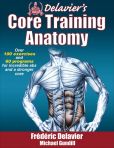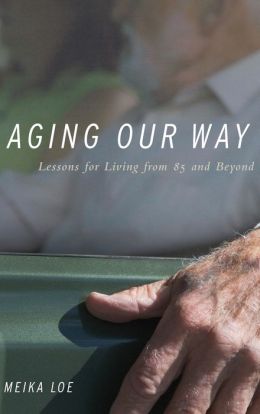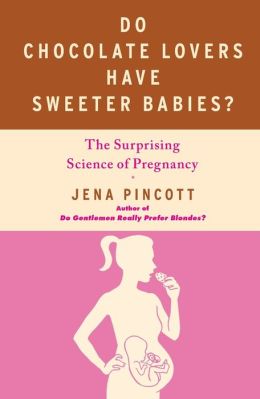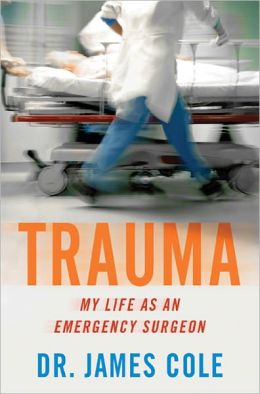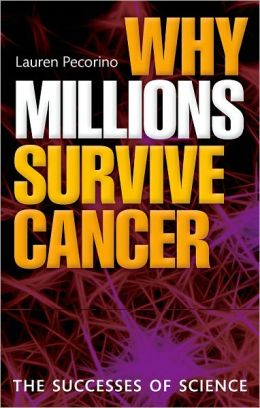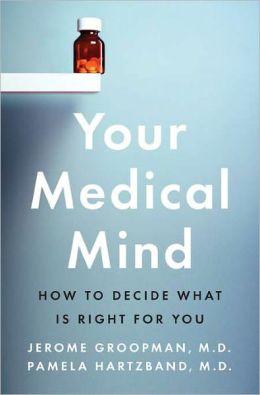by Frederic Delavier (Find this book)
"Delavier's Core Training Anatomy" is your guide for increasing core strength, stability, flexibility, and tone.
Whether you're just beginning your routine or looking to enhance an
existing conditioning program, "Delavier's Core" "Training Anatomy
"presents the most effective exercises and workouts for the results you
want. It's all here, and all in the stunning detail that only Frederic
Delavier can provide.
With 460 full-color photos and
illustrations, you'll go inside over 100 exercises and 60 programs to
see how muscles interact with surrounding joints and skeletal
structures. You'll learn how variations, progressions, and sequencing
can affect muscle recruitment, the underlying structures, and ultimately
the results.
"Delavier's Core Training Anatomy "includes proven
programming for sculpting your abs, reducing fat, improving
cardiovascular health, and relieving low back discomfort. Targeted
routines are presented for optimal training and performance in more than
20 sports, including running, cycling, basketball, soccer, and golf.
The former editor in chief of "PowerMag" in France, author and
illustrator Frederic Delavier is a journalist for "Le Monde du" "Muscle"
and a contributor to" Men's Health Germany" and several other strength
publications. His previous publications, "Strength Training Anatomy" and
"Women's Strength Training Anatomy," have sold more than 2 million
copies. -- Publisher Marketing
Health and Medicine Titles
You can check availability by clicking the links!
Tuesday, September 24, 2013
Tuesday, September 17, 2013
Aging Our Way: Lessons for Living from 85 and Beyond
by Meika Loe (Find this book)
In 1998, Hallmark unveiled their new "One-Hundredth-Birthday" cards, and by 2007 annual sales were at 85,000. America is rapidly graying: between now and 2030, the number of people in the U.S. over the age of 80 is expected to almost triple. But how long people live raises the question of how well they live.
Aging Our Way follows the everyday lives of 30 elders (ages 85-102) living at home and mostly alone to understand how they create and maintain meaningful lives for themselves. Drawing on the latest interdisciplinary scholarship on aging and three years of interviews with the elders, Meika Loe explores how elders navigate the practical challenges of living as independently as possible while staying healthy, connected, and comfortable. While most books on the subject treat old age as a social problem and elders as simply diminished versions of their former selves, Aging Our Way views them as they really are: lively, complicated, engaging people finding creative ways to make their aging as meaningful and manageable as possible. In their own voices, elders describe how they manage everything from grocery shopping, doctor appointments, and disability, to creating networks of friends and maintaining their autonomy. In many ways, these elders can serve as role models. The lessons they have learned about living in moderation, taking time for themselves, asking for help, keeping a sense of humor, caring for others, and preparing for death provide an invaluable source of wisdom for anyone hoping to live a long and fulfilling life. Through their stories, Loe helps us to think about aging, well-being, and the value of human relationships in new ways.
Written with remarkable warmth and depth of understanding, Aging Our Way offers a vivid look at a group of people who too often remain invisible--those who have lived the longest--and all they have to teach us. -- Publisher Marketing
In 1998, Hallmark unveiled their new "One-Hundredth-Birthday" cards, and by 2007 annual sales were at 85,000. America is rapidly graying: between now and 2030, the number of people in the U.S. over the age of 80 is expected to almost triple. But how long people live raises the question of how well they live.
Aging Our Way follows the everyday lives of 30 elders (ages 85-102) living at home and mostly alone to understand how they create and maintain meaningful lives for themselves. Drawing on the latest interdisciplinary scholarship on aging and three years of interviews with the elders, Meika Loe explores how elders navigate the practical challenges of living as independently as possible while staying healthy, connected, and comfortable. While most books on the subject treat old age as a social problem and elders as simply diminished versions of their former selves, Aging Our Way views them as they really are: lively, complicated, engaging people finding creative ways to make their aging as meaningful and manageable as possible. In their own voices, elders describe how they manage everything from grocery shopping, doctor appointments, and disability, to creating networks of friends and maintaining their autonomy. In many ways, these elders can serve as role models. The lessons they have learned about living in moderation, taking time for themselves, asking for help, keeping a sense of humor, caring for others, and preparing for death provide an invaluable source of wisdom for anyone hoping to live a long and fulfilling life. Through their stories, Loe helps us to think about aging, well-being, and the value of human relationships in new ways.
Written with remarkable warmth and depth of understanding, Aging Our Way offers a vivid look at a group of people who too often remain invisible--those who have lived the longest--and all they have to teach us. -- Publisher Marketing
Tuesday, June 4, 2013
Wheat Belly: Lose the Wheat, Lose the Weight, and Find Your Path Back to Health
by William Davis (Find this book)
Cardiologist Dr. William Davis explains how eliminating wheat from our
diets can prevent fat storage, shrink unsightly bulges, and reverse
myriad health problems. Over 200 million Americans consume food products
made of wheat every day. As a result, over 100 million experience some
form of adverse health effect, ranging from minor rashes to high blood
sugar to unattractive stomach bulges preventative cardiologist William
Davis calls "wheat bellies." According to Davis, that excess fat has
nothing to do with gluttony, sloth, or too much butter: it's due to the
whole grain wraps we eat for lunch. After witnessing over 2000 patients
regain health after giving up wheat, Davis reached the disturbing
conclusion that wheat is the single largest contributor to the
nationwide obesity epidemic-and that elimination of wheat is key to
dramatic weight loss and optimal health. In Wheat Belly, Davis exposes
the harmful effects of what is actually a product of genetic tinkering
and agribusiness being sold to the American public as "wheat"-and
provides readers with a user-friendly, step-by-step plan to navigate a
new wheat- free lifestyle. Informed by cutting-edge science and
nutrition, along with case studies from men and women who have
experienced life-changing transformations in health after waving goodbye
to wheat, Wheat Belly is an illuminating look at what is truly making
Americans sick and an action plan to clear our plates of this seemingly
benign ingredient.
-- Publisher Marketing
Tuesday, May 28, 2013
Do Chocolate Lovers Have Sweeter Babies?: The Surprising Science of Pregnancy
by Jena Pincott (Find this book)
Brain Candy for expectant parents!
Pregnancy is an adventure.
Lots
of books tell you the basics--"the baby is the size of [insert fruit
here]." But pregnant science writer Jena Pincott began to wonder just
how a baby might tinker with her body--and vice versa--and chased down
answers to the questions she wouldn't ask her doctor, such as:
- Does stress sharpen your baby's mind--or dull it?
- Can you predict your baby's temperament?
- Why are babies born in the darker months of the year more likely to grow up to be novelty-loving risk takers?
- Are bossy, dominant women more likely to have boys?
- How can the cells left behind by your baby affect you years later?
This is a different kind of pregnancy book--thoughtful, fun, and filled with information you won't find anywhere else. -- Publisher Marketing
Tuesday, May 21, 2013
Trauma: My Life as an Emergency Surgeon
by James Cole (Find this book)
"In this pulse-pounding medical memoir, trauma surgeon James Cole takes readers straight into the ER, where anything can and does happen.
"TRAUMA is Dr. Cole's harrowing account of his life spent in the ER and on the battlegrounds, fighting to save lives. In addition to his gripping stories of treating victims of gunshot wounds, stabbings, attempted suicides, flesh-eating bacteria, car crashes, industrial accidents, murder, and war, the book also covers the years during Cole's residency training when he was faced with 120-hour work weeks, excessive sleep deprivation, and the pressures of having to manage people dying of traumatic injury, often with little support. Unlike the authors of other medical memoirs, Cole trained to be a surgeon in the military and served as a physician member of a Marine Corps reconnaissance unit, United States Special Operations Command (USSOCOM), and on a Navy Reserve SEAL team. From treating war casualties in Afghanistan and Iraq to his experiences as a civilian trauma surgeon treating alcoholics, drug addicts, criminals, and the mentally deranged, TRAUMA is an intense look at one man's commitment to his country and to those most desperately in need of aid. -- Publisher Marketing
"In this pulse-pounding medical memoir, trauma surgeon James Cole takes readers straight into the ER, where anything can and does happen.
"TRAUMA is Dr. Cole's harrowing account of his life spent in the ER and on the battlegrounds, fighting to save lives. In addition to his gripping stories of treating victims of gunshot wounds, stabbings, attempted suicides, flesh-eating bacteria, car crashes, industrial accidents, murder, and war, the book also covers the years during Cole's residency training when he was faced with 120-hour work weeks, excessive sleep deprivation, and the pressures of having to manage people dying of traumatic injury, often with little support. Unlike the authors of other medical memoirs, Cole trained to be a surgeon in the military and served as a physician member of a Marine Corps reconnaissance unit, United States Special Operations Command (USSOCOM), and on a Navy Reserve SEAL team. From treating war casualties in Afghanistan and Iraq to his experiences as a civilian trauma surgeon treating alcoholics, drug addicts, criminals, and the mentally deranged, TRAUMA is an intense look at one man's commitment to his country and to those most desperately in need of aid. -- Publisher Marketing
Tuesday, May 14, 2013
Why Millions Survive Cancer: The Successes of Science
by Lauren Pecorino (Find this book)
Today, more than 12 million cancer survivors just in the United States
alone are alive as a result of the extraordinary advances in science and
medicine. In Why Millions Survive Cancer, Lauren Pecorino illuminates
this enormous and recent progress in fighting cancer, painting an
intriguing portrait of scientific breakthroughs, the leading scientists
behind these key discoveries, and the steps that we can all take to
reduce our exposure to cancer.
The struggle against cancer has been long and difficult, but as Pecorino shows, the tide is changing, and changing rapidly. Treatments are becoming gentler and more effective. Many newly developed drugs have fewer side effects and can be administered as a pill rather than intravenously, giving patients a better quality of life. Better response rates are occurring for treatments that are targeted against the genetic characteristics of a tumor. Advances in instrumentation, robotics and imaging have led to more precise and less invasive surgical procedures. And public awareness about carcinogens is spreading and, increasingly, people are avoiding cigarettes, alcohol, and excessive exposure to the sun. As Pecorino discusses these exciting new developments, she provides readers with fascinating accounts of medical research and the discoveries we have made about the nature of cancer and the ways we can defeat it. For instance, we learn the stories behind such important new drugs as Avastin, Gardasil (the world's first cervical cancer vaccine), Herceptin, and Gleevec, the development of which unfolded "like a fairy tale with a happy ending."
All this progress is fairly recent and it may well be the beginning of the end--for cancer. With one out of three people contracting cancer during their lifetimes, this book offers a wealth of "good news" that we all will want to hear. -- Publisher Marketing
The struggle against cancer has been long and difficult, but as Pecorino shows, the tide is changing, and changing rapidly. Treatments are becoming gentler and more effective. Many newly developed drugs have fewer side effects and can be administered as a pill rather than intravenously, giving patients a better quality of life. Better response rates are occurring for treatments that are targeted against the genetic characteristics of a tumor. Advances in instrumentation, robotics and imaging have led to more precise and less invasive surgical procedures. And public awareness about carcinogens is spreading and, increasingly, people are avoiding cigarettes, alcohol, and excessive exposure to the sun. As Pecorino discusses these exciting new developments, she provides readers with fascinating accounts of medical research and the discoveries we have made about the nature of cancer and the ways we can defeat it. For instance, we learn the stories behind such important new drugs as Avastin, Gardasil (the world's first cervical cancer vaccine), Herceptin, and Gleevec, the development of which unfolded "like a fairy tale with a happy ending."
All this progress is fairly recent and it may well be the beginning of the end--for cancer. With one out of three people contracting cancer during their lifetimes, this book offers a wealth of "good news" that we all will want to hear. -- Publisher Marketing
Tuesday, May 7, 2013
Your Medical Mind: How to Decide What Is Right for You
by Jerome Groopman MD (Find this book)
"An entirely new way to make the best medical decisions."
Making the right medical decisions is harder than ever. We are overwhelmed by information from all sides--whether our doctors' recommendations, dissenting experts, confusing statistics, or testimonials on the Internet. Now Doctors Groopman and Hartzband reveal that each of us has a "medical mind," a highly individual approach to weighing the risks and benefits of treatments. Are you a minimalist or a maximalist, a believer or a doubter, do you look for natural healing or the latest technology? The authors weave vivid narratives of real patients with insights from recent research to demonstrate the power of the medical mind. After reading this groundbreaking book, you will know how to arrive at choices that serve you best. -- Publisher Marketing
Making the right medical decisions is harder than ever. We are overwhelmed by information from all sides--whether our doctors' recommendations, dissenting experts, confusing statistics, or testimonials on the Internet. Now Doctors Groopman and Hartzband reveal that each of us has a "medical mind," a highly individual approach to weighing the risks and benefits of treatments. Are you a minimalist or a maximalist, a believer or a doubter, do you look for natural healing or the latest technology? The authors weave vivid narratives of real patients with insights from recent research to demonstrate the power of the medical mind. After reading this groundbreaking book, you will know how to arrive at choices that serve you best. -- Publisher Marketing
Subscribe to:
Posts (Atom)

